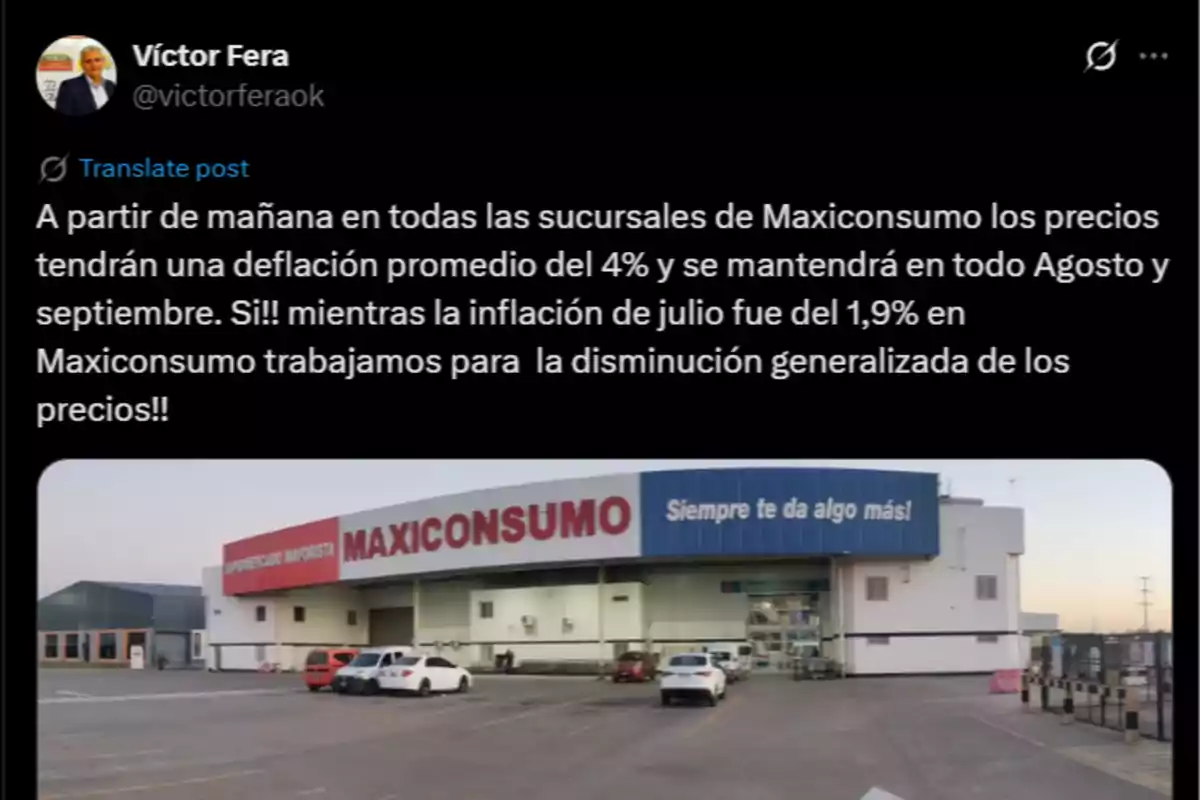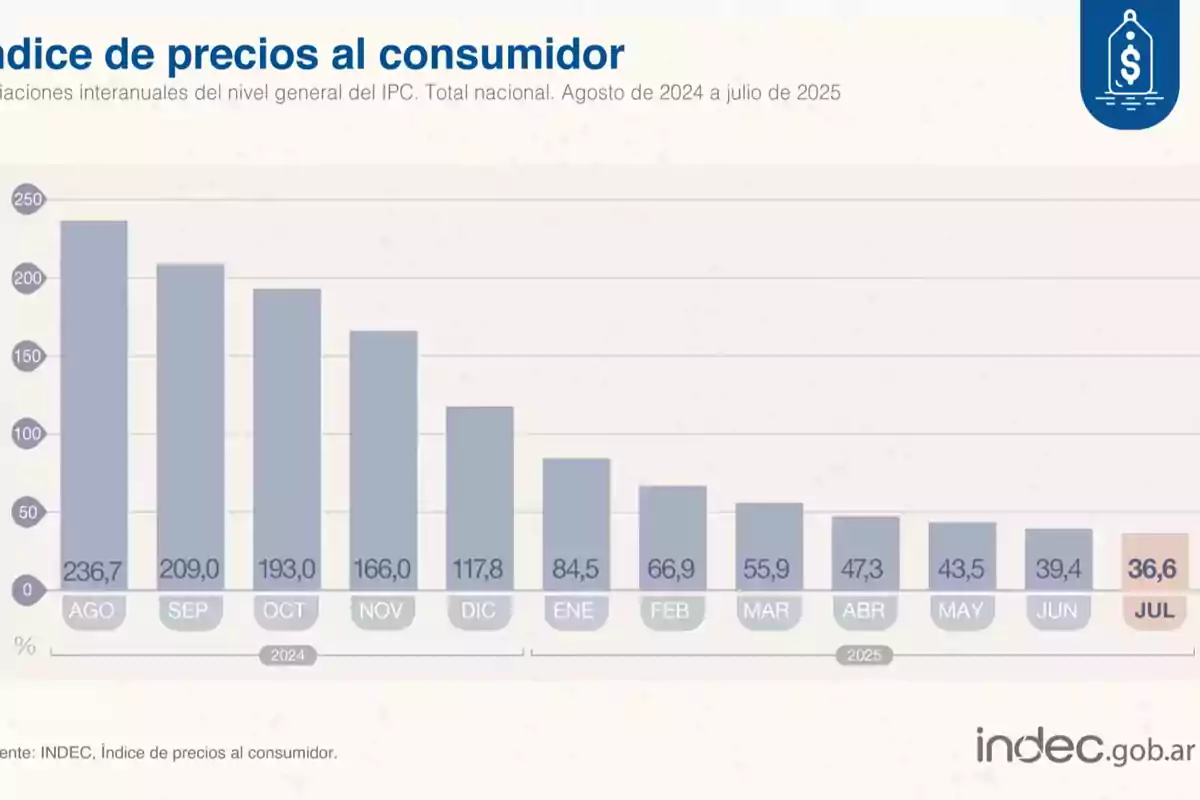
Maxiconsumo announced a 4% reduction in all its prices for August and September.
With the July index at just 1.9% and three consecutive months below 2%, the administration is consolidating an unprecedented course
President Javier Milei's government achieved a new victory in the fight against inflation. According to the National Institute of Statistics and Censuses (INDEC), the Consumer Price Index (CPI) for July recorded an increase of just 1.9%, consolidating three consecutive months with variations below 2%.
The news also resonated in the private sector. Businessman Víctor Fera, owner of Marolio, Molto and the Maxiconsumo chain, surprised with an announcement on his X account: "Starting tomorrow, in all Maxiconsumo branches, prices will have an average deflation of 4%, and this will be maintained throughout August and September. Yes! While July's inflation was 1.9%, at Maxiconsumo we're working for a widespread decrease in prices."

Fera's decision, as a leading figure in the food industry and the wholesale sector, confirms that the economic course is not only organizing the macroeconomic variables, but is also beginning to directly impact store shelves. With his own agricultural production in Mendoza—where he grows tomatoes and raises livestock—the businessman joined the wave of confidence sparked by the stabilization program.
The combination of contained inflation, the absence of pass-through, and even the appearance of falling prices in retail trade consolidates the narrative of a new era. Javier Milei's government is not only showing that it's possible to defeat inflation in Argentina, but is also beginning to inspire the private sector in a virtuous circle of stability and confidence.

With this data, accumulated inflation in the first seven months of 2025 stood at 17.3%, while the year-on-year rate fell to 36.6%, a number unimaginable just a year ago, when in July 2024 the monthly increase had been 4%. The result confirms the sustained trend of deceleration that the Argentine economy is experiencing under the current administration.
At the beginning of the report, it was highlighted that core inflation—the most representative of price dynamics—was just 1.5%. Goods rose by 1.4%, regulated items by 2.3%, and seasonal items by 4.1%. Among the divisions, Recreation and culture led the increase with 4.8%, while Clothing and footwear even showed a decrease of 0.9%. Food and non-alcoholic beverages, the most sensitive category for households, aligned with the general average with an increase of 1.9%.
The most striking aspect of the month was that, despite a 6.3% increase in the dollar in July, there was no pass-through effect—the feared pass-through—confirming the projections previously anticipated by President Milei himself and disproving several private consulting firms that had forecast inflation above 2%.
This data not only reinforces the credibility of the libertarian economic plan, but also projects a scenario of future stability. The government anticipates that, if this path is maintained, Argentina could approach "zero inflation" by 2026, a goal that until recently seemed utopian.
More posts: